US Secretary of State Mike Pompeo today demanded Venezuela reopen a bridge on the Colombian border for an aid shipment organised by the opposition, the BBC reports:
Venezuelan soldiers have blocked the crossing ahead of a delivery arranged by opposition leader Juan Guaidó, who has declared himself interim president. President Nicolás Maduro, who has the support of the army, has rejected letting it into the country.
In a tweet, Mr Pompeo demanded Mr Maduro let the aid through.”The Maduro regime must LET THE AID REACH THE STARVING PEOPLE,” the post reads.
Dimitris Pantoulas, a political scientist in Caracas, called the opposition’s aid delivery plan a high-stakes gamble, the Times reports:
“This is 99 percent about the military and one percent about the humanitarian aspects,” he said. “The opposition is testing the military’s loyalty, raising their cost of supporting Maduro. Are they with Maduro, or no? Will they reject the aid? If the answer is no, then Maduro’s hours are numbered.”
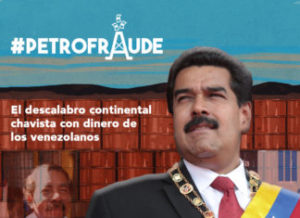
Connectas
But if the delivery of aid is not carried out smoothly, faith in the opposition’s ability to address the country’s enormous problems could erode. “This is a challenge for the opposition to show that it can govern,” Mr. Pantoulas said. “If this fails, this could damage the image of the opposition.”
Treating the Maduro regime as illegitimate, sanctioning its top officials, and sending aid despite a blockade will hasten its demise and speed the transition to democratic governance, argue Irwin Cotler and Brandon Silver of the Raoul Wallenberg Centre for Human Rights.
The plight of the Venezuelan people has resulted in one of the largest refugee flows in the world today. Millions have fled and are fleeing their homeland—a crisis perpetuated by Maduro’s corrupt and criminal dictatorship, they write for Foreign Policy:
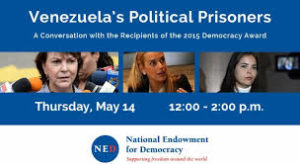 While the United Nations sounds the alarm on a critical shortage of basic necessities and the weaponization of food and medicine—resulting in dramatic rises in infant and maternal mortality, starvation, stunted growth, and a staggering resurgence of diseases that were formerly eradicated—Maduro has prevented international relief, blocking humanitarian aid. Rather than allowing the Venezuelan people to express their grievances and exercise their constitutional right to peacefully protest and seek solutions at the ballot box, he instead arrests, imprisons, tortures, and murders them.
While the United Nations sounds the alarm on a critical shortage of basic necessities and the weaponization of food and medicine—resulting in dramatic rises in infant and maternal mortality, starvation, stunted growth, and a staggering resurgence of diseases that were formerly eradicated—Maduro has prevented international relief, blocking humanitarian aid. Rather than allowing the Venezuelan people to express their grievances and exercise their constitutional right to peacefully protest and seek solutions at the ballot box, he instead arrests, imprisons, tortures, and murders them.
The only solution is negotiations with the clear aim of convening elections within a reasonable period of time (no more than three months), argues Yanina Welp, Latin America director at the Centre for Democracy Studies (ZDA) in Aarau, Switzerland.
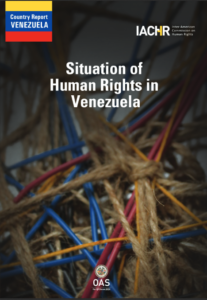 The Polish Round Table that ended Communist rule should be a role model for Venezuela, argues Professor Grzegorz Kolodko of Warsaw’s Kozminski University. The negotiations resulted in agreements that not only successfully directed Poland to the path of the market economy and liberal democracy, but launched a process of post-communist transformation from central Europe to the ends of Asia, he writes to the Financial Times:
The Polish Round Table that ended Communist rule should be a role model for Venezuela, argues Professor Grzegorz Kolodko of Warsaw’s Kozminski University. The negotiations resulted in agreements that not only successfully directed Poland to the path of the market economy and liberal democracy, but launched a process of post-communist transformation from central Europe to the ends of Asia, he writes to the Financial Times:
At the end of the 1980s, the economic situation of Poland was deplorable. Rampant inflation, stagnation, unpaid foreign debt, devastating shortages of consumer goods, increasing emigration. As a result, the society grew tired of such mess and undemocratic political system. Yet, there were people who were ready to defend the previous regime. Just like today in Venezuela.
“Venezuela may be the second Poland, but it may also become the second Syria. Time to choose,” Kolodko adds.
But other observers argue that any “national dialogue” would only play into Maduro’s hands, writes Eli Lake:
This is not the first time he has pretended to be willing to compromise when faced with widespread protest. That’s what happened in the spring of 2017, after Maduro’s hand-picked Supreme Court effectively dissolved the National Assembly and assumed its powers. Maduro got the court to review its ruling, and it was revised, but he retained the power to overrule the National Assembly.
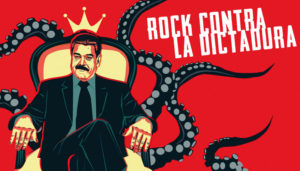 “Dialogue is a way for Maduro to quiet the streets,” says Vanessa Neumann, a Venezuelan-born writer and the founder of Asymmetrica, a risk consultancy firm..
“Dialogue is a way for Maduro to quiet the streets,” says Vanessa Neumann, a Venezuelan-born writer and the founder of Asymmetrica, a risk consultancy firm..
The Lima Group, which brings together Canada and a number of Latin American countries with the aim of finding a nonviolent solution to the Venezuelan crisis, held an emergency meeting in Ottawa on Monday at which it unequivocally rejected any foreign military intervention, the New York Times adds:
“This is a process led by the people of Venezuela in their very brave quest to return their country themselves to democracy in accordance with their own constitution,” declared the Canadian foreign minister, Chrystia Freeland, in a statement echoed by most Latin American and European supporters of Mr. Guaidó.
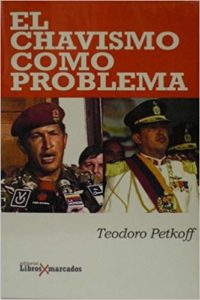 But international pressure is not necessarily a game-changer, even when countries take unusually forceful steps, such as recognizing an opposition figure as a country’s rightful leader, the Post’s Adam Taylor adds:.
But international pressure is not necessarily a game-changer, even when countries take unusually forceful steps, such as recognizing an opposition figure as a country’s rightful leader, the Post’s Adam Taylor adds:.
“Governments for the most part try to avoid doing this kind of thing,” David Bosco, an associate professor at Indiana University’s School of Global and International Studies, said in an interview last month. Recognizing challengers can present practical diplomatic problems, he added, and runs the risk of undermining allies who have their own domestic issues.
Maduro’s allies have enabled him to maintain his grip on power despite years of domestic unrest and growing international pressure to step down, notes analyst Rocio Cara Labrador. Decisions by Russia, China, and, to a lesser extent, Cuba to withdraw their support could prove the Maduro regime’s undoing. On the other hand, increasing their assistance could extend Maduro’s reign. Ultimately, what comes next rests on the strength of Maduro’s alliances, she writes for the Council on Foreign Relations.
Yet these allies face two hard questions, adds the University of Chicago’s Charles Lipson, founding director of PIPES, the Program on International Politics, Economics, and Security:
- First, will any of them extend hard currency or military backing to the embattled regime?
- The second question is more troubling for the U.S. and Venezuela’s people. Will Maduro’s allies support a guerrilla insurgency or civil war if Guaidó takes over?
This is a grim scenario, he writes for Real ClearWorld.







